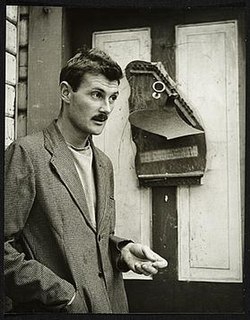A Quote by Gregory of Nazianzus
What He was, He laid aside; what He was not, He assumed. He takes upon Himself the poverty of my flesh so that I may receive the riches of His divinity.
Related Quotes
He once thought it himself, that he might die with grief: for his wife, his daughters, his sisters, his father and master the cardinal. But pulse, obdurate, keeps its rhythm. You think you cannot keep breathing, but your ribcage has other ideas, rising and falling, emitting sighs. You must thrive in spite of yourself; and so that you may do it, God takes out your heart of flesh, and gives you a heart of stone.
He who asks to receive his daily bread does not automatically receive it in its fullness as it is in itself: he receives it according to his own capacity as recipient. The Bread of Life (cf. Jn. 6:35) gives Himself in His love to all who ask, but not in the same way to all; for He gives Himself more fully to those who have performed great acts of righteousness, and in smaller measure to those who have not achieved so much. He gives Himself to each person according to that person's spiritual ability to receive Him.
Every time we turn to Christ in faith it is like a moment of Sabbath, a little foretaste of eternal rest and glory. The gift of that moment lies not in what we do but what we receive. It is the holy time set aside to receive the greatest gift of God ever has to give, which is himself, in his own beloved Son.
Seek the simplest in all things, in food, clothing, without being ashamed of poverty. For a great part of the world lives in poverty. Do not say, "I am the son of a rich man. It is shameful for me to be in poverty." Christ, your Heavenly Father, Who gave birth to you in the baptistery, is not in worldly riches. Rather he walked in poverty and had nowhere to lay His head.
Just as the teaching of the Law and the prophets, being harbingers of the coming advent of the Logos in the flesh, guide our souls to Christ (cf. Gal. 3:24), so the glorified incarnate Logos of God is Himself a harbinger of His spiritual advent, leading our souls forward by His own teachings to receive His divine and manifest advent. He does this ceaselessly, by means of the virtues converting those found worthy from the flesh to the spirit. And He will do it at the end of the age, making manifest what has hitherto been hidden from men.










































